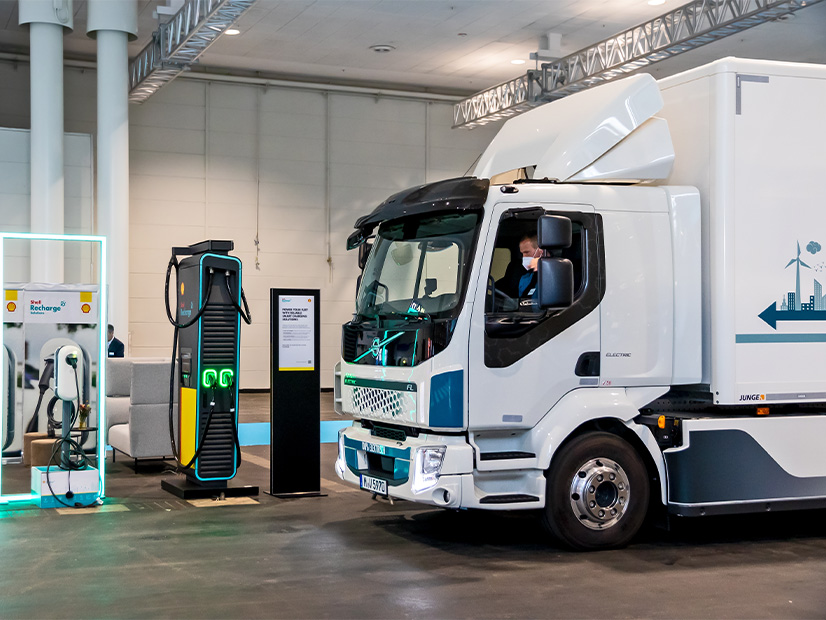
New York is laying the groundwork to develop the charging infrastructure needed for the larger electric vehicles intended to replace internal combustion trucks and buses on the state’s roads.
The state’s Public Service Commission on Thursday began a proceeding (Case 23-E-0070) that will examine the needs of medium- and heavy-duty (MHD) electric vehicles. Most of PSC’s efforts to date have centered on the light-duty passenger vehicles that account for most of the EVs on the road today.
The proceeding also will try to develop proactive planning approaches to prepare the grid for the demands of charging these larger vehicles. Stakeholder input will help focus the proceeding, the PSC said, but regardless of the final details, it expects to prioritize development in disadvantaged communities that bear the burden of air pollution from diesel-powered trucks and buses.
About 28% of New York’s greenhouse gas emissions are attributed to transportation, the PSC said. The nearly 550,000 trucks and buses registered in the state account for a disproportionately large share of transportation emissions.
But electrifying those vehicles at a fleet scale will require vast amounts of electricity: A single busy highway truck stop would draw as many megawatts as an entire town or a professional sports stadium, by some estimates. (See Study Projects Power Demands of Highway EV Charging Network.)
The challenge in the new proceeding is to anticipate the location and size of the charging facilities and put in place the grid infrastructure to serve them before they begin to strain system capacity.
Case 20-E-0197, in which PSC ordered utilities to proactively plan for the transmission and distribution needs of renewable energy, has a similar goal at the other end of the grid.
PSC Chair Rory Christian noted a kind of circularity in Thursday’s meeting agenda, at which the commissioners unanimously approved construction of an $810 million energy hub in an area of New York City where power demand is expected to ramp up sharply, in part because of EV charging.
The MHD planning effort, he said, will continue that trend with “the goal of making sure that the efforts we put forth are supporting rather than hindering adoption of EVs and the deployment of charging stations throughout the state.”
That order was approved unanimously.
A list of 16 questions is included to guide stakeholder input toward key topics. Responses are due by May 22, and replies to those responses are due by June 25. Based on the input, Department of Public Service staff will prepare a white paper for recommendations for the PSC to consider as it moves the proceeding forward.
The PSC followed a similar path with the make-ready program that focused on light-duty EVs, in Case 18-E-0138, which is now undergoing midpoint review and revisions.



